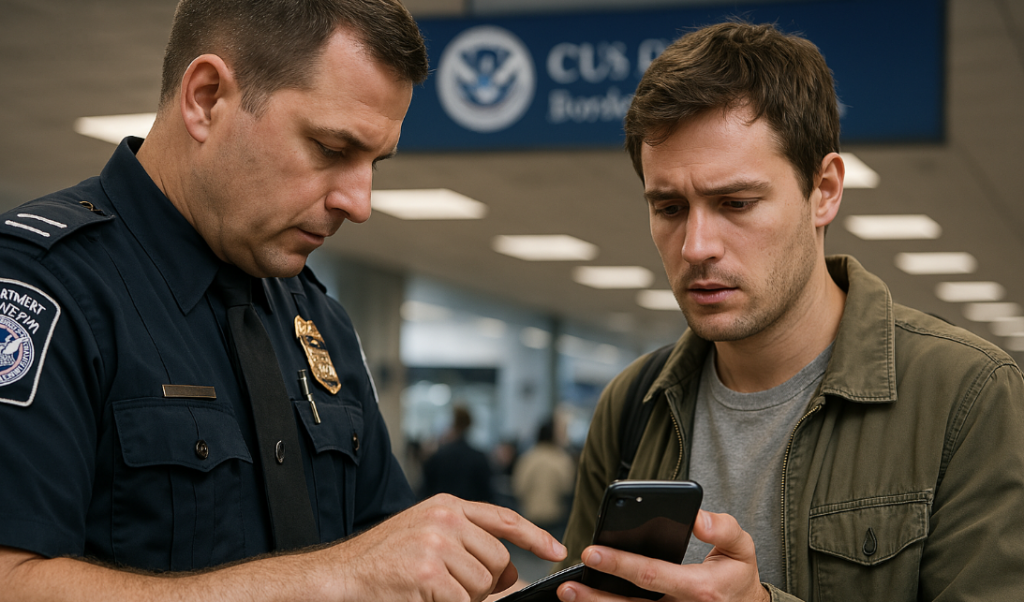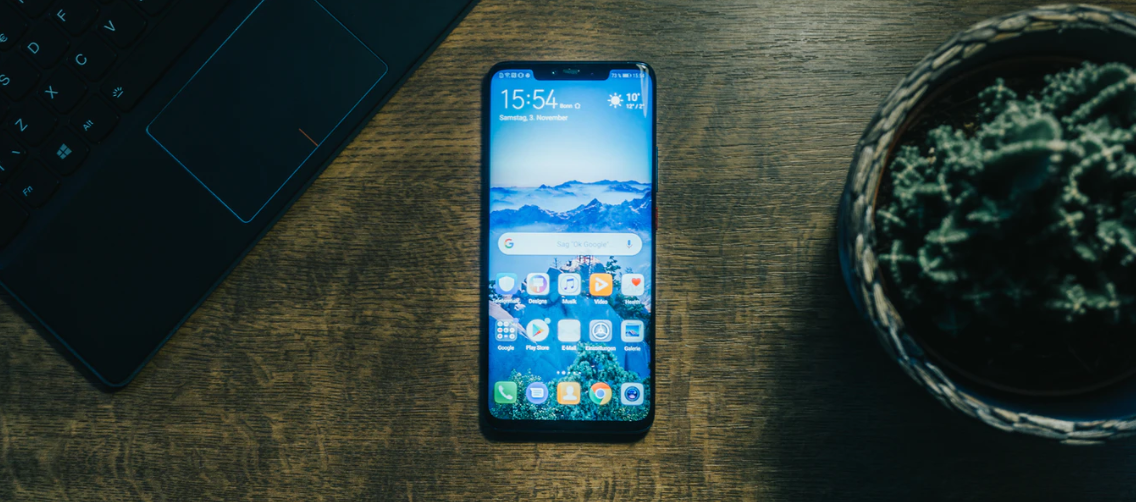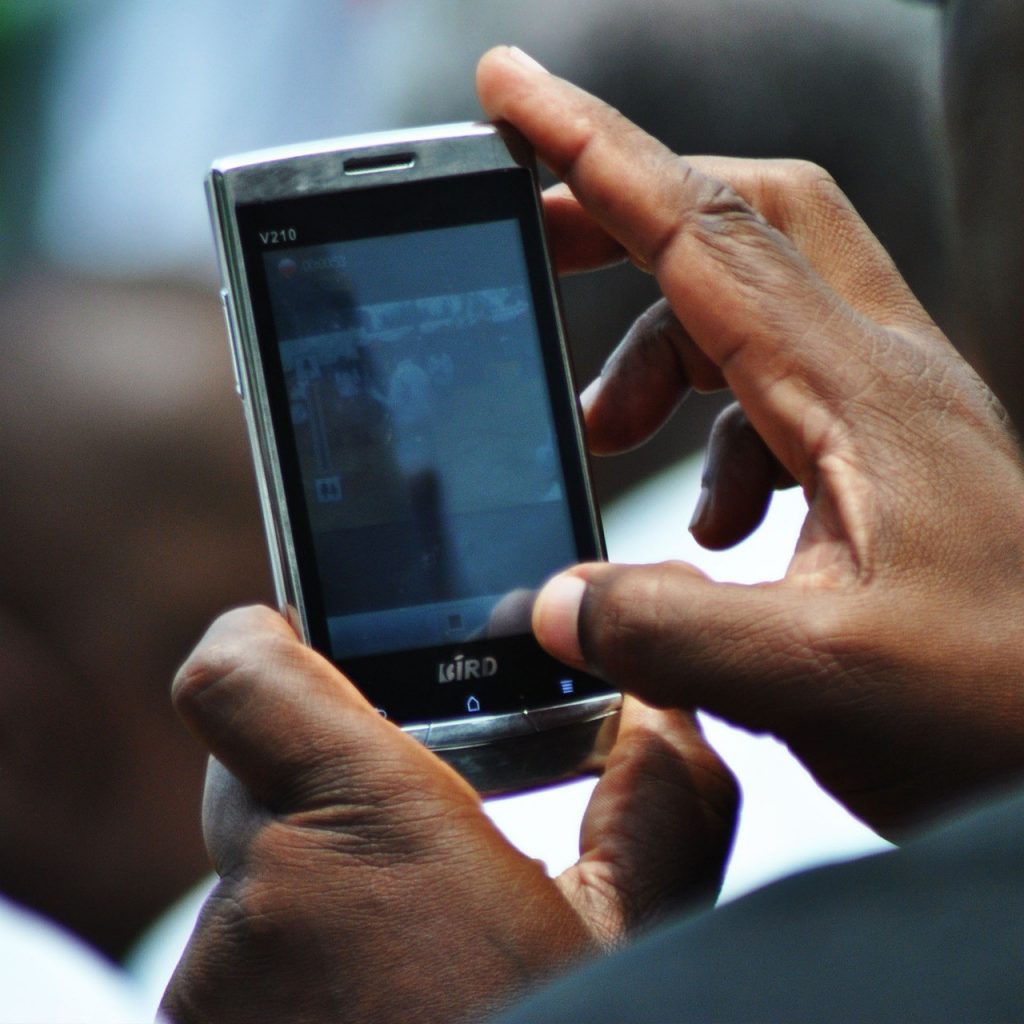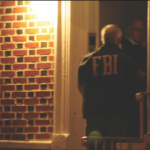Search Warrants and Cell Phones
The 4th Amendment to the United States Constitution prohibits the police from searching a person’s cell phone without a warrant.

Police Need a Warrant to Search Cell Phone Data
In Riley v California, a unanimous United States Supreme Court held that police must obtain a warrant before searching a cell phone. A vast amount of information is stored on cell phones, including search history, text messages, photos, videos, etc. A warrant requirement broadly protects Americans’ privacy rights in the digital age.
Warrantless searches have been justified to protect officer safety from hidden weapons or the destruction of evidence. The Court determined that neither reason applied to the digital information on a cellphone or other mobile devices. The Court stated that police officers could examine the physical aspects of a cell phone to ensure it would not be used as a weapon, but once that was done, the data on the telephone could not endanger anyone.
Chief Justice Roberts, who wrote the opinion for the Court, stressed that cellphones are different than other objects. A person’s entire life can be recreated from a cellphone, making unfettered access to them without a warrant an illegal search and seizure.
The Court acknowledged that mobile devices are essential tools for criminals, but they are also necessary devices for most Americans, and requiring police to get a warrant before searching a cell phone could hinder investigations. Chief Justice Roberts wrote, “[b]ut individual rights sometimes outweigh the convenience of the government” and further “privacy comes at a cost.”
The Court concluded its opinion with the following: “Our answer to the question of what police need to do before searching a cellphone seized incident to arrest is accordingly simple – get a warrant.”
Privacy advocates hailed the cell phone decision as a signal that the court would protect constitutional privacy interests from the vast powers of modern technology. The legal director of the ACLU stated, “[b]y recognizing that the digital revolution has transformed our expectations of privacy, today’s decision is itself revolutionary and will help to protect the privacy rights of all Americans.”
“Why does the 4th Amendment protect cell phones if passed before phones existed?”
The Fourth Amendment protects cell phones even though it was passed long before their invention because the principles of the Amendment are interpreted to apply to modern situations and technologies. The Fourth Amendment was designed to protect the right to privacy and safeguard individuals from unreasonable searches and seizures by the government. This protection was initially conceived in the context of physical spaces like homes and papers.
As technology evolved, so did the interpretation of what constitutes “papers” and “effects” under the Fourth Amendment. Courts, including the Supreme Court of the United States, have recognized that modern devices like cell phones contain vast amounts of personal information and thus fall under the protections of the Fourth Amendment. For example, in the landmark case of Riley v. California (2014), the Supreme Court held that the police generally need a warrant to search the contents of a cell phone seized from an individual who has been arrested.
This decision reflects a broader understanding that the essence of the Fourth Amendment is to protect the privacy of individuals against arbitrary government intrusion. This principle remains relevant regardless of changes in technology. Therefore, while the Fourth Amendment was written in an era without cell phones, its protections are interpreted to encompass modern forms of personal data and communication.

History of the 4th Amendment
The Fourth Amendment to the United States Constitution, a fundamental part of the Bill of Rights, was adopted in response to the abuses of the British government in colonial America. Before the American Revolution, British authorities used general warrants, known as “writs of assistance,” which allowed them to search colonists’ homes and businesses for contraband or smuggled goods without specific cause or authorization. The colonists widely resented these practices as invasions of their privacy and property rights. After gaining independence, the framers of the U.S. Constitution sought to protect citizens from unreasonable searches and seizures by the government. This led to the creation and adoption of the Fourth Amendment in 1791, which ensures the right of individuals to be secure in their persons, houses, papers, and effects against unreasonable searches and seizures and requires any warrant to be judicially sanctioned and supported by probable cause. Over time, the interpretation and application of the Fourth Amendment have evolved, particularly in response to changing technologies and societal values. Still, its core principle of protecting privacy against arbitrary governmental intrusion remains a cornerstone of American law.
“If a judge finds that police officers searched a cell phone in violation of the 4th Amendment, will they dismiss the charges?”
If a judge finds that police officers searched a cell phone in violation of the Fourth Amendment, it does not automatically lead to the dismissal of the charges. However, it can have significant implications for the case. The primary consequence of such a violation is typically the application of the “exclusionary rule,” which mandates that evidence obtained in violation of the Constitution cannot be used in court.
Here’s how this might play out in a case:
- Suppression of Evidence: If the judge rules that the search was unconstitutional, any evidence obtained directly from that search will likely be deemed inadmissible in court. This is known as suppressing the evidence.
- Impact on the Case: Suppression of key evidence can weaken the prosecution’s case. If the excluded evidence is crucial for proving the defendant’s guilt, the prosecution might not have enough remaining evidence to meet their burden of proof.
- Potential Dismissal: In some cases, if the suppressed evidence is central to the prosecution’s case and there is insufficient other evidence to support the charges, the case might be dismissed. However, this is not guaranteed and depends on the specifics of the case.
- Fruit of the Poisonous Tree Doctrine: The “fruit of the poisonous tree” doctrine might apply. This doctrine extends the exclusionary rule to evidence indirectly derived from the illegal search. If subsequent evidence is found to be tainted by the initial unconstitutional search, it may also be suppressed.
While an unconstitutional cell phone search can significantly impact a criminal case, it does not automatically result in the dismissal of the charges. The ultimate outcome depends on the overall strength of the evidence against the defendant, the persuasiveness of their criminal defense attorney, and the extent to which the case relies on the evidence obtained from the unconstitutional search.

LEWIS & DICKSTEIN, P.L.L.C – Criminal defense attorneys who fearlessly fight to defend your constitutional rights!
If you, or someone you know, faces criminal charges and a possible loss of freedom, it is essential to have expert legal counsel by your side. The attorneys at LEWIS & DICKSTEIN, P.L.L.C. have spent decades defending our client’s constitutional rights. We have successfully fought to suppress illegally seized evidence in felony and misdemeanor cases. Top defense lawyers know when a warrant is required for searching a cell phone, home, car, purse, or anything else and can challenge evidence seized or searched in violation of the 4th Amendment.
Call us today at (248) 263-6800 for a free consultation or complete an online Request for Assistance Form. We will contact you promptly and find a way to help you.















